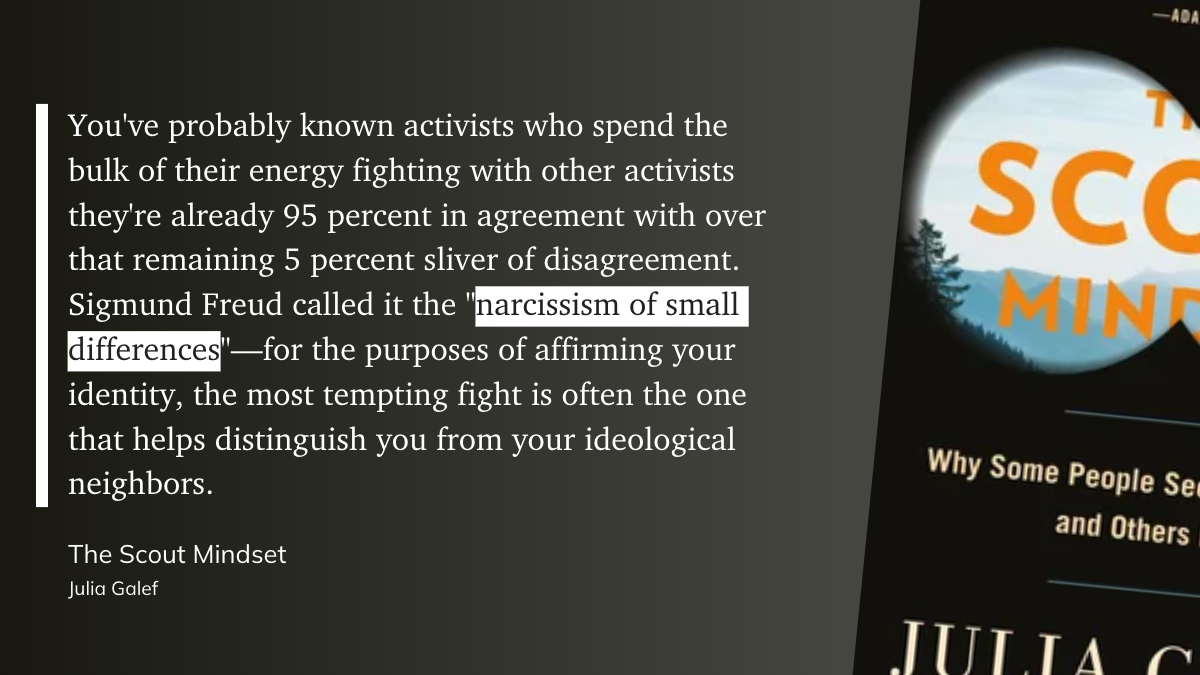- Cory Doctorow, Pluralistic: Tiktok’s Enshittification
end-to-end principle
“the end-to-end principle: the idea that networks should be designed so that willing speakers' messages would be delivered to willing listeners' end-points as quickly and reliably as they could be. That is, irrespective of whether a network operator could make money by sending you the data it wanted to receive, its duty would be to provide you with the data you wanted to see.”
double standard test
“double standard test: ‘Am I judging other people’s behavior by a standard I wouldn’t apply to myself?’ The double standard test can be applied to groups as well as individuals.”
semiconductor
“Electrons orbit the nucleus of an atom in different “states”, which form regions that are called “bands”. These bands keep their electrons firmly in place. In between these bands are “bandgaps” – states in which no electron can be.
Conductors have no bandgaps, and so electrons flow through them. That is why a copper wire conducts electricity, for example. In insulators (like wood, glass, plastics, or ceramics), there is a very wide bandgap, which blocks the flow of electricity. Finally, in semiconductors, there’s a relatively narrow bandgap. That allows them to either act as an insulator or a conductor. Semiconductors can become conductors when they absorb a “photon” (an elementary particle of light) with an energy potential equal to or greater than the bandgap of the semiconductor material.”
kris de decker, How to Build a Low-Tech Solar Panel?
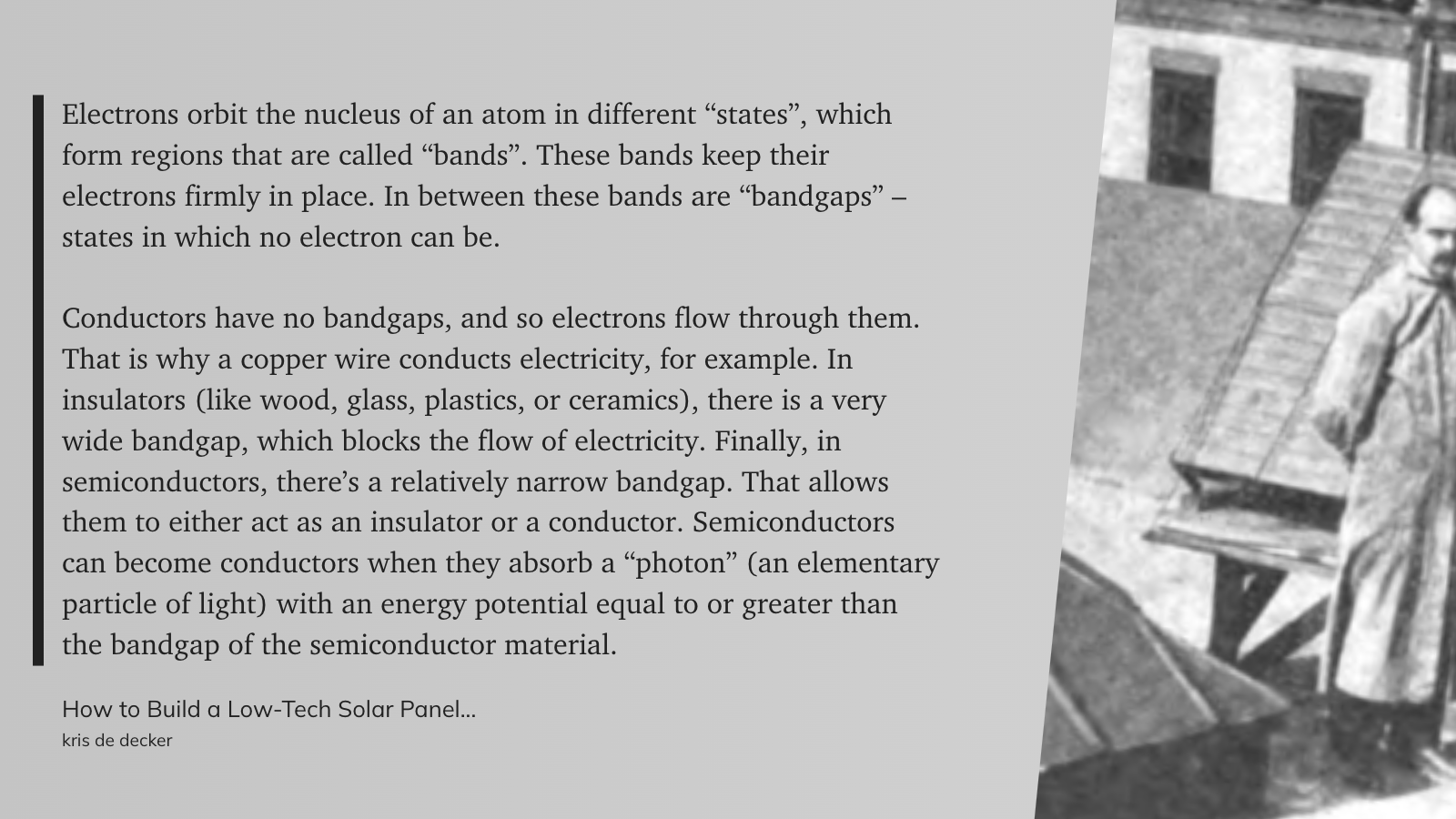
epistemic bubble
“Current usage has blurred this crucial distinction, so let me introduce a somewhat artificial taxonomy. An ‘epistemic bubble’ is an informational network from which relevant voices have been excluded by omission.”
C Thi Nguyen, Escape the echo chamber

schema
“Schemas refer to the patterns of thoughts and behaviors, built up over time, that people use to process information quickly and effortlessly as they interact with the world.”
Greg Lukianoff, Jonathan Haidt, The Coddling of the American Mind
principle of charity
“There is a principle in philosophy and rhetoric called the principle of charity, which says that one should interpret other people’s statements in their best, most reasonable form, not in the worst or most offensive way possible.”
Greg Lukianoff, Jonathan Haidt, The Coddling of the American Mind
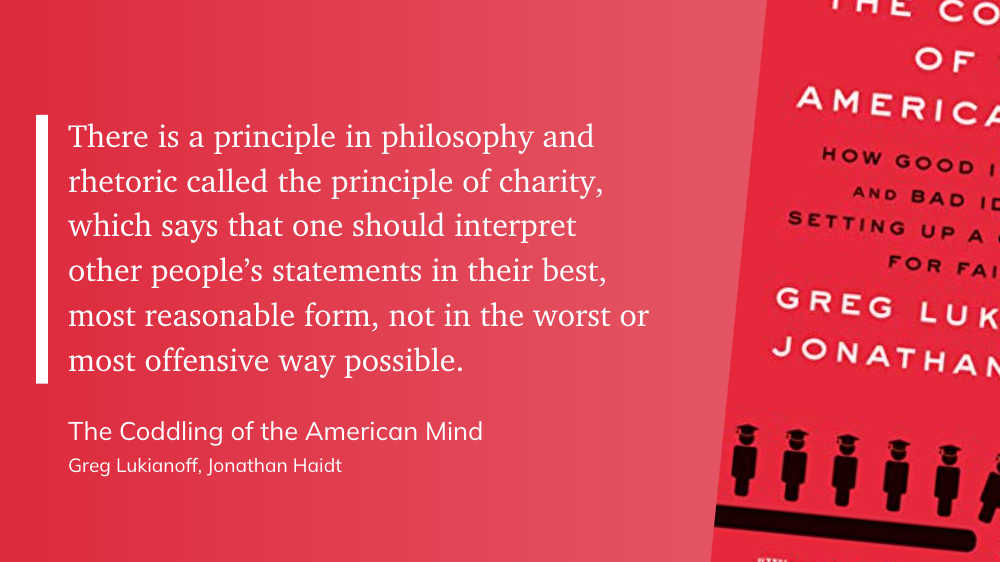
constructed emotion
“as you will learn, however, neuroscience now shows us how this process—and much more—occurs in the brain to make an emotion on the spot. I call this explanation the theory of constructed emotion:
In every waking moment, your brain uses past experience, organized as concepts, to guide your actions and give your sensations meaning. When the concepts involved are emotion concepts, your brain constructs instances of emotion.”
Lisa Feldman Barrett, How Emotions Are Made
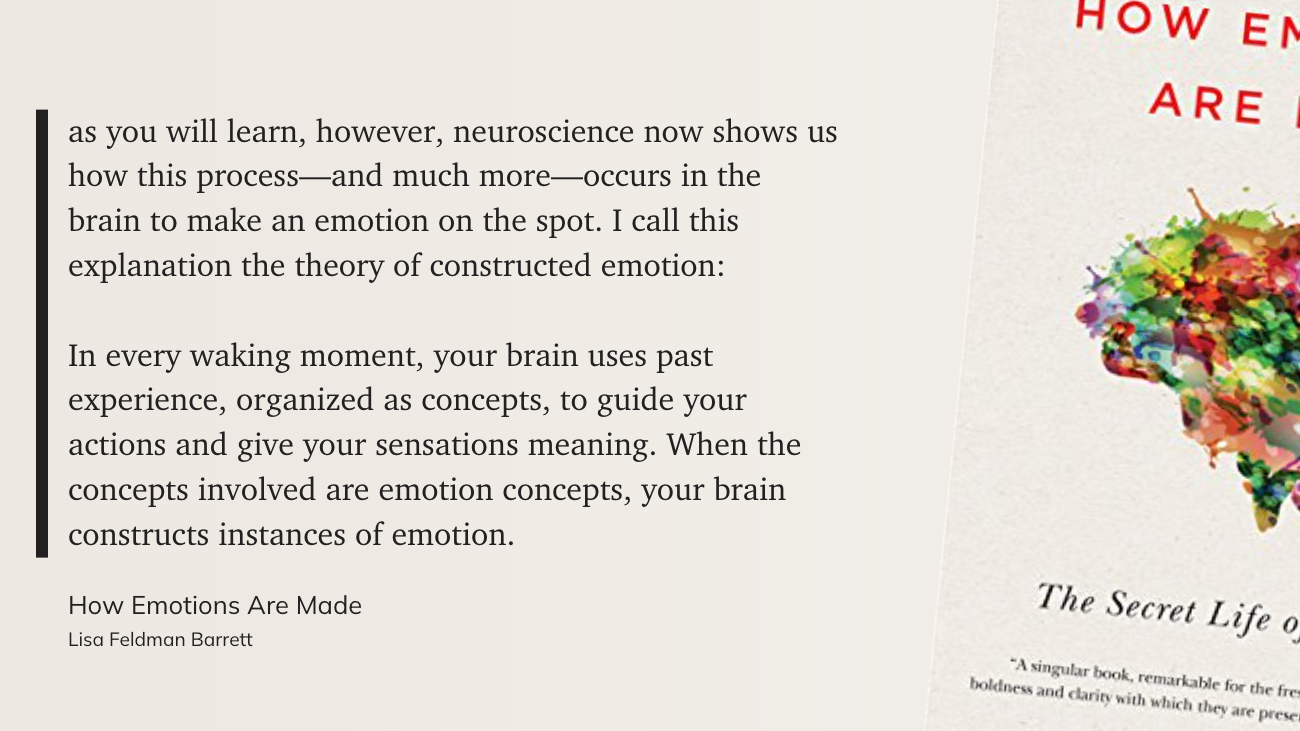
slow water
“I’ve come to think of this trend as the ‘Slow Water’ movement. Like the Slow Food movement founded in Italy in the late 20th century in opposition to fast food and all its ills, Slow Water seeks to remedy the ways in which redirecting and speeding water off the land causes problems.
Slow Water mimics or collaborates with natural systems, restoring space for water to slow on land in wetlands, floodplains, mountain meadows, forests, tidal marshes, and mangroves. Slow Water is distributed, not centralised: think of the wet zones scattered throughout a wild watershed instead of a big dam and reservoir. It is also socially just: Slow Water doesn’t take water from some people to give to others, or protect some communities while pushing floods on to another. Slow Water gives communities agency to restore resilience to their local landscapes and revive local cultures. And in taking a systems-oriented approach, it simultaneously supports local water availability, flood control, natural carbon storage, and other-than-human life.”
Erica Gies, What Does Water Want? Most Humans Seem to Have Forgotten
moral outrage distortion
“The Moral Outrage Distortion 😱 occurs when engagement-maximizing algorithms amplify emotionally charged, moralizing content. This results in polarization, mischaracterizations of “the other side,” and the perception of more moral outrage around us than there really is.”
humanetech.com, The Breakdown of Shared Understanding
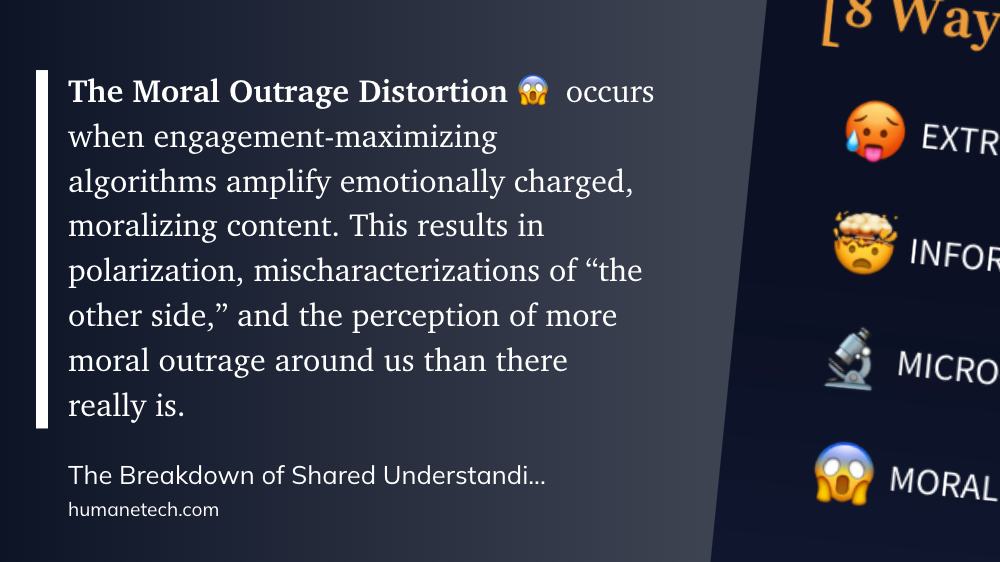
outsider test
“outsider test: Imagine someone else stepped into your shoes—what do you expect they would do in your situation?”
Julia Galef, The Scout Mindset
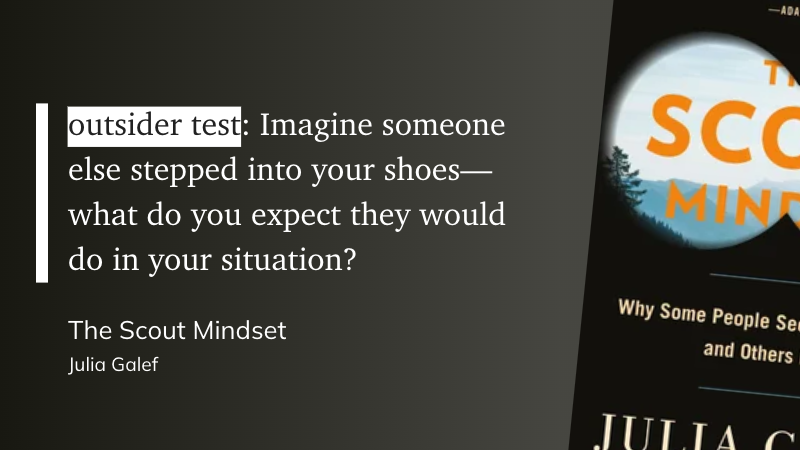
insulin sensitivity
“Insulin sensitivity can be defined as the amount of insulin the pancreas needs to produce in order to deposit a certain amount of glucose.”
mindful eating
“Mindful eating is the practice of paying full attention to every aspect of the eating experience— food choice, meal environment, and even the physical sensations before, during, and after a meal. It draws on principles from mindfulness practice, which seeks to engage all of the senses to deepen the experience of the present moment. With time, mindful eating can help us observe our physical and emotional responses to food without judgment and enhance our understanding of how food affects our health.”
Zoë Atlas, MPH, RDN, How Mindful Eating Can Improve Metabolic Health
negative filtering
“NEGATIVE FILTERING: You focus almost exclusively on the negatives and seldom notice the positives. “Look at all of the people who don’t like me.””
Greg Lukianoff, Jonathan Haidt, The Coddling of the American Mind
great acceleration
“Environmentalists now refer to the late 1940s as the “Great Acceleration” – the period in which humanity’s impact on the planet increased exponentially.”
Ending Over Mending: Planned Obsolescence Is Killing the Planet | Jeff Sparrow
done list
“keep a “done list,” which starts empty first thing in the morning, and which you then gradually fill with whatever you accomplish through the day.”
Oliver Burkeman, Four Thousand Weeks
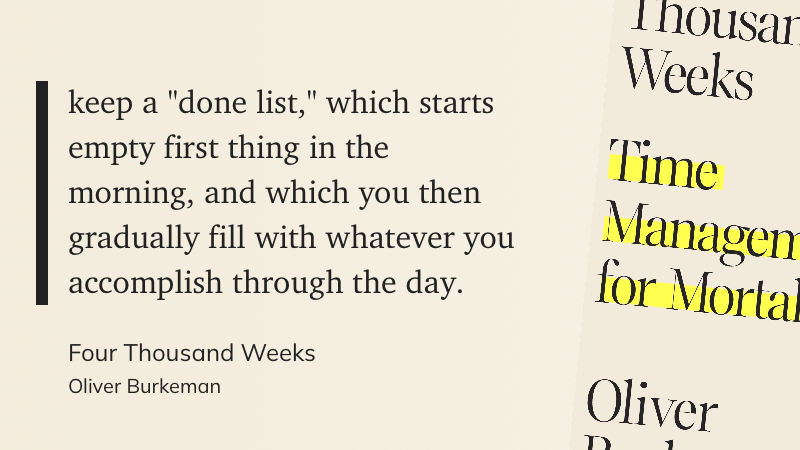
safetyism
““Safetyism” refers to a culture or belief system in which safety has become a sacred value, which means that people become unwilling to make trade-offs demanded by other practical and moral concerns. “Safety” trumps everything else, no matter how unlikely or trivial the potential danger.”
Greg Lukianoff, Jonathan Haidt, The Coddling of the American Mind
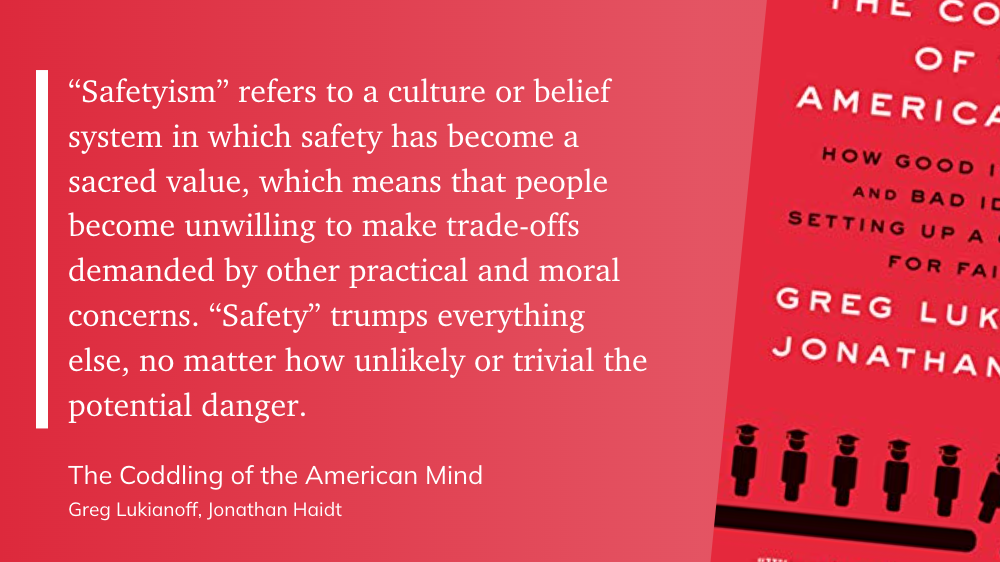
MESSy
“There’s no simple solution, but there are several practices that enable us to be more attuned to our emotions and to be more deliberate about our subsequent choices. A cheesy acronym I like–the only one I use in my practice–is getting MESSy:
• Mindfulness: The goal of mindfulness here isn’t stress reduction, but simply being more effective at noticing what we’re feeling. • Exercise: Regular physical activity attunes us to the physiological manifestations of emotion and allows us to sense an emotional response sooner. • Sleep: Ample research shows that when we' re not well-rested our ability to sense and regulate emotion is impaired. • (Reducing Chronic) Stress: Chronic, low-level stress diminishes our ability to regulate emotion, and there are often stressors we can minimize with some modest changes in our daily routines.”
digital minimalism
“Digital Minimalism
A philosophy of technology use in which you focus your online time on a small number of carefully selected and optimized activities that strongly support things you value, and then happily miss out on everything else.”
and
“a philosophy that prioritizes long-term meaning over short-term satisfaction.”
SALAMI
“One potential tonic against this fallacy is to follow an Italian MP’s suggestion and replace “AI” with “SALAMI” (“Systematic Approaches to Learning Algorithms and Machine Inferences”). It’s a lot easier to keep a clear head when someone asks you, “Is this SALAMI intelligent? Can this SALAMI write a novel? Does this SALAMI deserve human rights?””
Cory Doctorow, Pluralistic: The AI Hype Bubble Is the New Crypto Hype Bubble
bioregionalism
“Bioregionalism, whose tenets were articulated by the environmentalist Peter Berg in the 1970s, and which is widely visible in indigenous land practices, has to do with an awareness not only of the many life-forms of each place, but how they are interrelated, including with humans. Bioregionalist thought encompasses practices like habitat restoration and permaculture farming, but has a cultural element as well, since it asks us to identify as citizens of the bioregion as much as (if not more than) the state. Our “citizenship” in a bioregion means not only familiarity with the local ecology but a commitment to stewarding it together.”
Jenny Odell, How to Do Nothing
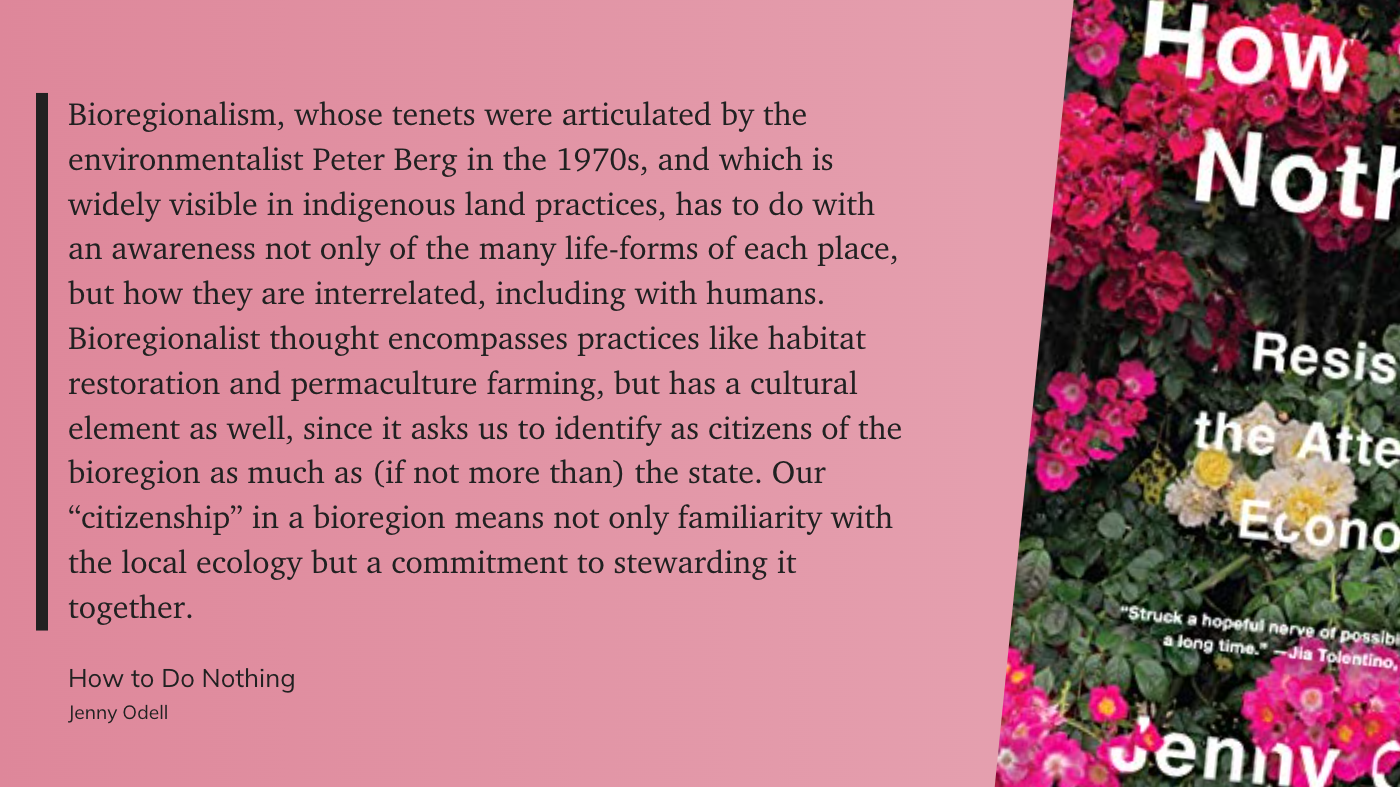
discounting positives
“discounting positives: Claiming that the positive things you or others do are trivial, so that you can maintain a negative judgment. “That’s what wives are supposed to do—so it doesn’t count when she’s nice to me,” or “Those successes were easy, so they don’t matter.””
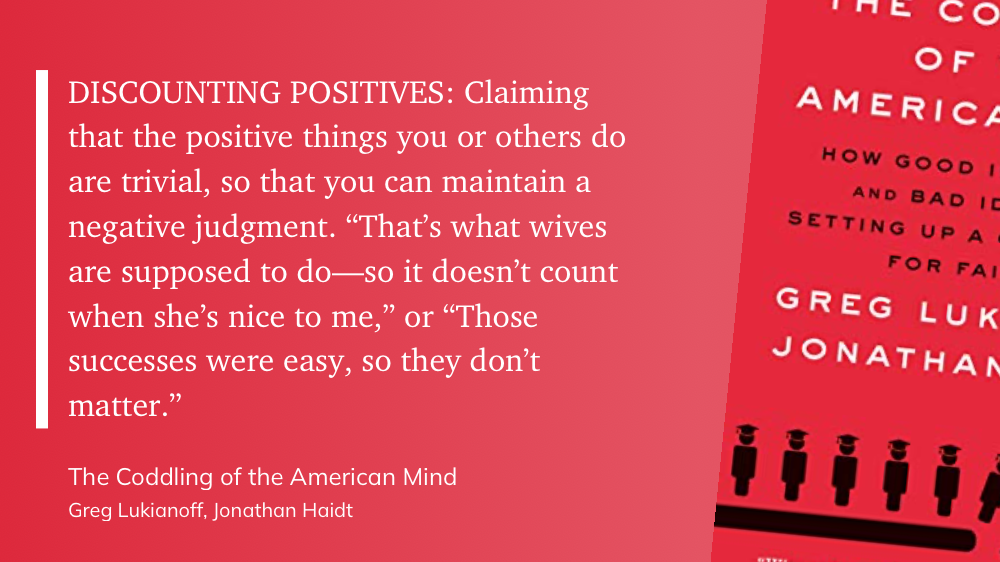
Greg Lukianoff, Jonathan Haidt, The Coddling of the American Mind
narcissism of small differences
“You’ve probably known activists who spend the bulk of their energy fighting with other activists they’re already 95 percent in agreement with over that remaining 5 percent sliver of disagreement. Sigmund Freud called it the “narcissism of small differences"—for the purposes of affirming your identity, the most tempting fight is often the one that helps distinguish you from your ideological neighbors.”
Julia Galef, The Scout Mindset
